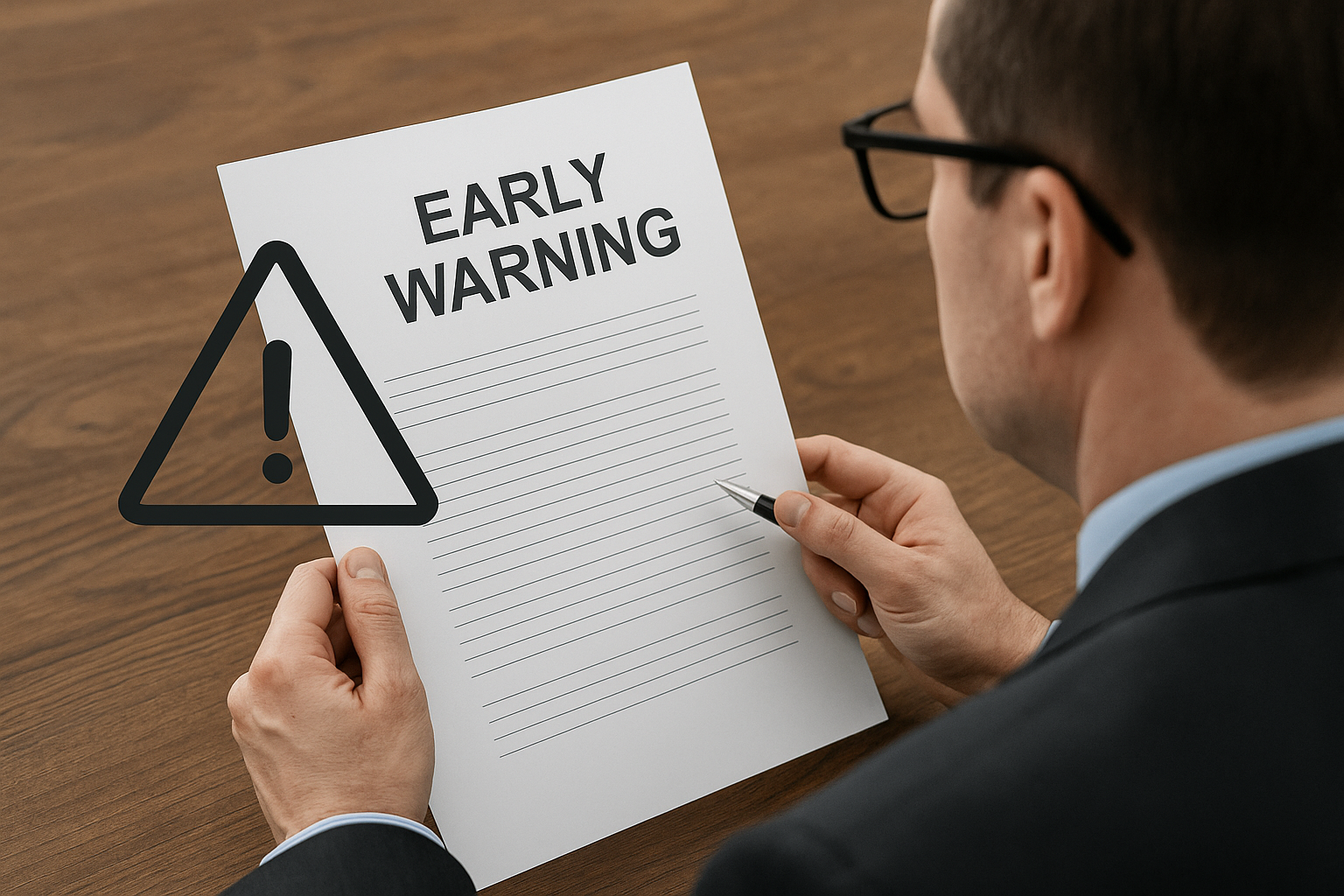NEC4: What Is an Early Warning — and Why Does It Matter?
The early warning process is a central feature of NEC4 contracts — but it’s more than just a contractual mechanism. It’s a framework for better project management, one we should be applying across all construction projects, regardless of the contract form.
Put simply, the early warning process requires both parties to notify each other of any matter that could negatively affect the project. Once notified, the parties are expected to work together to mitigate the issue and minimise its impact.
A Good Practice, Formalised
NEC4 doesn’t invent this process — it formalises what should already be happening in well-managed projects: open communication, early identification of risks, and collaborative problem-solving.
The obligation to notify is not optional. When a party becomes aware of something that could affect time, cost, quality, or another key project objective, they must notify the other party as soon as possible. In NEC language, this is a “shall notify” obligation.
Who Notifies What — and When?
In most cases, early warnings will come from the supplier — the Contractor, Consultant, or Supplier — as they’re typically first to see issues on the ground. That said, the Client’s representative (such as the Project Manager or Service Manager) is also obliged to notify matters they become aware of, including internal risks like delays in providing access or issuing information.
The scope of early warnings depends on:
-
The specific NEC4 contract in use (ECC, PSC, etc.)
-
The secondary options included
-
Any additional Z clauses
The Early Warning Register and Meetings
Once a matter is notified, the Client’s representative adds it to the Early Warning Register. The parties then discuss the matter at Early Warning meetings, which may occur regularly or on an ad-hoc basis as required. The purpose of these meetings is to collaboratively find ways to avoid or reduce the impact of the notified issue.
This process is not box-ticking. It’s intended to promote transparency, early action, and shared responsibility — core principles of NEC4.
What Happens If You Don’t Notify?
Failing to raise an early warning can have serious consequences. Issues that go unnotified can grow into disputes, delays, or additional cost — precisely what the process is designed to prevent.
For suppliers, not issuing an early warning when required may also affect assessments of compensation events, and can limit recovery of cost or time.
Getting It Right — Not Too Little, Not Too Much
In our experience, the most common challenges are:
-
Too few early warnings (nothing is notified until it’s too late)
-
Too many early warnings (everything that might go wrong is thrown in, overwhelming the process)
Striking the right balance is critical. The early warning process should be a live, practical tool — not a formality or an inbox-filler.
Need Help Making It Work?
If you’re struggling to manage early warnings effectively — whether due to lack of engagement, over-notification, or confusion about responsibilities — we can help. We support project teams in implementing early warning processes that are clear, compliant, and genuinely useful.
Contact us to get your early warning process back on track.



